 Your new post is loading...

|
Scooped by
EcoVadis
April 8, 2019 4:24 AM
|
H&M will transition to 100% sustainable cotton by 2020, according to the company's 2018 annual report. The retailer reached roughly 95% sustainable supply in 2018. The commitment to sustainable cotton is part of a larger plan to convert to 100% recycled or sustainable materials across the company's supply chain by 2030. The report said 57% of the retailer's 2018 materials met this standard — up from 35% in 2017. It also recently announced plans to phase out conventional cashmere on environmental and animal welfare grounds as part of the same initiative.

|
Scooped by
EcoVadis
April 5, 2019 3:59 AM
|
Online retailer ASOS has released its latest Modern Slavery Statement, evaluating its work between April 2018 – March 2019 and detailing the firm’s commitments towards modern slavery risk mitigation in its supply chain by 2020. One of the key challenges faced by ASOS in achieving its 2020 goals and eradicating modern slavery from its supply chain is that much of its product portfolio – equating to 52 per cent of sales – is manufactured for third-party brands, meaning that it must engage directly with these organisations in order to seek alignment in policies and practices.

|
Scooped by
EcoVadis
March 29, 2019 3:24 AM
|
Brands working with the online retailer, including River Island, Missguided, New Look and Dr Martens, signed a pledge during an event at the House of Lords to take measures to eliminate slavery. The pledge included a commitment to map and assess modern slavery risks and to work collaboratively with other brands to develop resources to raise awareness of slavery in garment supply chains.

|
Scooped by
EcoVadis
March 26, 2019 4:27 AM
|
Concerned over the growing environmental damage caused by the clothing industry, the United Nations (UN) launched an Alliance for Sustainable Fashion in Nairobi, Kenya on Monday. Global textile production doubled between 2000 and 2014, leading to massive emissions, water use, and soil contamination. The clothing sector has emerged as the second biggest consumer of water, consuming nearly 93 billion cubic meters every year. The Alliance is aiming to improve collaboration among UN agencies by analyzing their efforts in making fashion sustainable, identifying solutions and gaps in their actions, and presenting these findings to governments to trigger policy changes, the UN officials said.

|
Scooped by
EcoVadis
March 26, 2019 2:47 AM
|
The UN Economic Commission for Europe (UNECE), the European Commission (EC), the International Labour Organisation (ILO), the International Trade Centre (ITC) and private sector partners are developing a ‘Decent Work and Transparency and Traceability Tool,’ UNECE announced during the Organisation for Economic Cooperation and Development (OECD) Due Diligence Forum recently. This collaboration is part of efforts to advance sustainable production patterns and a circular economy approach, in line with the twelfth US sustainable development goal (SDG 12). Momentum to address traceability and sustainability in the fashion and garment industry has been increasing, according to UNECE.

|
Scooped by
EcoVadis
March 19, 2019 4:51 AM
|
Australian fashion brands are using factories that exploit workers, a report released this month claims.
Some clothing brands are using workers in Bangladesh and Vietnam that are paid as little as 55 cents a hour.
Oxfam Australia has rated Australian retailers efforts to improve worker poverty in their supply chains.

|
Scooped by
EcoVadis
March 19, 2019 2:56 AM
|
Global fashion search platform Lyst has released a new report based on the online shopping behaviour of 80 million shoppers over 12 months that shows there’s been a 66 per cent increase in searches based around sustainable fashion. Search terms were tracked more than 100 million searches across 5 million fashion products from 12,000 designers which picked up search terms such as “ethical brands” and “vegan fashion” as well as a 16 per cent increase in searches for “organic cotton” compared to the previous 12 months.

|
Scooped by
EcoVadis
March 15, 2019 1:47 AM
|
Fast fashion retailer Primark's first ever line of women's jeans made from organic cotton will soon be available in the U.K. and European Union — selling for the equivalent of less than $20, according to a press release. These jeans fall under the retailer's "Primark Cares Initiative" under which the company has used fabric made from recycled polyester and water bottles. Katharine Stewart, ethical trade and environmental sustainability director at Primark, said the brand intends to eventually employ organic cotton "across our entire product range."

|
Scooped by
EcoVadis
March 1, 2019 3:40 PM
|
The committee scrutinised the impact of the fashion industry, inviting evidence from brands, retailers and campaign groups. The inquiry found that UK consumers buy more new clothes per person than any other country in Europe, with more than one million tonnes discarded each year. Although some parts of the industry are making progress in reducing their carbon and water consumption, these improvements have been outweighed by the increased volumes of clothing being sold, the MPs found. Some 1,130,000 tonnes of clothing was purchased in the UK in 2016, an increase of almost 200,000 tonnes since 2012, MPs found.

|
Scooped by
EcoVadis
February 28, 2019 2:57 AM
|
Luxury fashion group LVMH has launched a new standard for the responsible sourcing of crocodile leather. The Paris-based company, which includes luxury leaders like Louis Vuitton, Loewe, Christian Dior, Fendi, Berlutti, Celine and Marc Jacobs in its Fashion and Leather Goods unit, is rolling the program out at three pilot farms.

|
Scooped by
EcoVadis
January 31, 2019 2:47 AM
|
As the style capitals prepare for the autumn/winter 2019 shows, Paris has launched a plan outlining its steps to become greener. Over the next five years, it will implement “Paris Good Fashion” – an initiative calling on influential industry players to push eco-conscious practices forward.

|
Scooped by
EcoVadis
November 21, 2018 6:43 AM
|
Major British retailers including Marks & Spencer, John Lewis and Next are joining forces with law enforcement agencies in a bid to eradicate labour exploitation and modern slavery from the fashion industry, Britain's anti-slavery body said on Tuesday. Six of the country's top fashion brands have vowed to raise awareness to stop worker abuses, protect at-risk and exploited employees, and root out modern slavery from their supply chains, according to the Gangmasters and Labour Abuse Authority (GLAA).

|
Scooped by
EcoVadis
November 15, 2018 7:12 AM
|
Sustainability is a core value of the Chopard business, and in March co-president Caroline Scheufele announced that the brand would be using 100 per cent ethical gold in all of its jewellery and watches by July. It is the first major player in the industry to make such a commitment as part of the “Journey to Sustainable Luxury” programme it introduced in 2013. Tiffany, Forevermark and Boucheron have also taken an increasingly ethical approach to the sourcing of precious materials.
|

|
Scooped by
EcoVadis
April 5, 2019 4:06 AM
|
Bags made using materials derived from post-consumer plastic waste and certified to the Global Recycled Standard (GRS) have been introduced to the ranges of both department store chain Selfridges and multichannel retailer John Lewis in partnership with ‘eco-friendly bag company’ Jutexpo.

|
Scooped by
EcoVadis
April 2, 2019 1:53 AM
|
A recent survey by UN initiative Better Factories Cambodia (BFC) shows that conditions in the country’s garment factories are improving. But the sheer number of rights violations that still occur make it clear that garment companies need to build new mechanisms for accountability and transparency.

|
Scooped by
EcoVadis
March 27, 2019 4:55 AM
|
"Labor and Human Rights Groups Urge Multi-Stakeholder Initiatives and Business Associations in the Apparel Sector to Adopt Transparency Requirements", 14 March 2019. In response to requests from trade unions, and other independent labor rights and human rights organizations, on February 27 the Fair Labor Association (FLA) voted to require its company affiliates to publicly disclose their supplier lists.

|
Scooped by
EcoVadis
March 26, 2019 3:03 AM
|
Brands, retailers, manufacturers and tanneries from across the world are under pressure to deliver a cleaner, more efficient and sustainable leather industry. Opportunities for several innovation and environment-friendly solutions were discussed at the Sustainability in the Leather Supply Chain Conference 2019 in Hong Kong that concluded recently.

|
Scooped by
EcoVadis
March 25, 2019 9:06 AM
|
H&M announced Monday the company will stop placing orders on conventional cashmere by the end of next year as part of its overarching sustainability efforts, according to a company blog post. Instead, the retailer will "work for a more transparent supply chain" where cashmere can be sourced from places that meet its environmental and animal welfare standards, per the announcement.

|
Scooped by
EcoVadis
March 19, 2019 3:55 AM
|
In 2018, searches for “sustainable fashion” increased by 66%, while for more specific items, like “sustainable denim” the surge was even higher, with page views up by 187%. Lyst’s research suggests that consumers are being more aware and careful about what they purchase, with customers searching for keywords like “ethical brands”, “econyl” and “organic cotton”.

|
Scooped by
EcoVadis
March 15, 2019 4:01 AM
|
A report commissioned by ETI has investigated how business models are at the forefront of creating pressures on labour standards in global supply chains. The Business Schools of King’s College London and the University of Warwick find that aggressive price competition and a reliance on supplier sourcing models drive deteriorating standards. Meanwhile, the rise of fast and super-fast fashion compounds problems. As do ‘no-frills discounters’ in food retail. Against this backdrop, the report recommends changes across the business spectrum – at shareholder, consumer, competition and production levels.

|
Scooped by
EcoVadis
March 13, 2019 2:41 AM
|
With the goal of ensuring organic cotton supply chain transparency and integrity, Haelixa has developed a solution to trace cotton fibers along the entire supply chain. The technology has been validated in real-life operational environment and scale. Among the various initiatives that Haelixa is joining to foster transparency in the industry, the company took part in a pioneering new project, called the Organic Cotton Traceability Pilot. The pilot which started in Q4 2018, is testing the combination of cutting-edge technologies including physical in-product markers and blockchain to trace organic cotton through its value chain.

|
Scooped by
EcoVadis
March 1, 2019 2:01 AM
|
The J.Crew Group and Fair Trade USA have formed a partnership to introduce a Fair Trade Certified denim collection for men and women. Sold at J.Crew and Madewell stores and on the retailers’ websites, the new clothing ranges from $60 to $128. “Through our work with Fair Trade USA, we’re empowering workers and ensuring fair conditions and equal economic opportunities for everyone who touches J.Crew and Madewell products,” said Libby Wadle, president of Madewell.

|
Scooped by
EcoVadis
February 20, 2019 2:34 AM
|
UK politicians have called on the Government to change the law to require fashion retailers to perform due diligence across their supply chains and have recommended tax breaks for companies that comply with environmental and social standards – while at the same time, punishing firms that don’t.

|
Scooped by
EcoVadis
January 15, 2019 7:25 AM
|
Most British consumers would pay more for their clothes if factory workers received fairer wages, but lack trust in the ethical pledges made by brands, a poll found on Thursday, amid growing concerns around labour abuses in the fashion industry.

|
Scooped by
EcoVadis
November 17, 2018 2:34 AM
|
Pressure by big brands on suppliers to deliver more quickly and cheaply contributes to labour abuses in factories that manufacture garments, footwear and textiles, according to a report published on Wednesday. More than half the suppliers surveyed were affected by cost negotiation strategies that cut into their profits, according to the report by Better Buying, a Delaware-based group that rates purchasing practices of brands and retailers.
|
 Your new post is loading...
Your new post is loading...






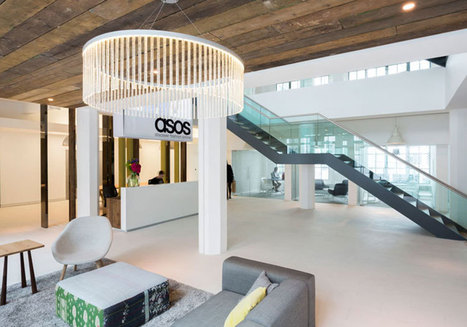



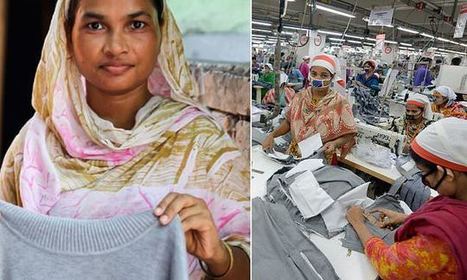
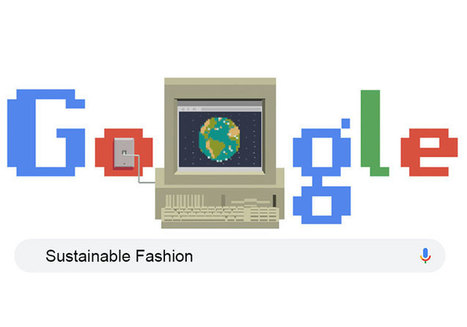



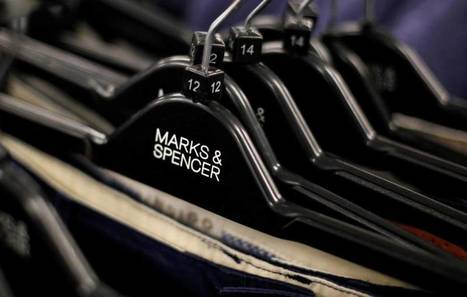


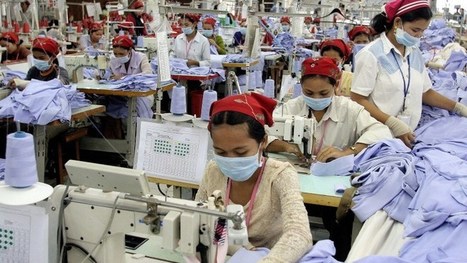





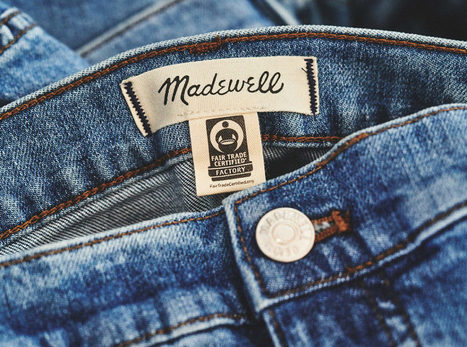








Business sustainability is essential to the long-term prosperity of global companies. Several firms have already made strong commitments to sustainability, in large part through transparency and addressing material issues.